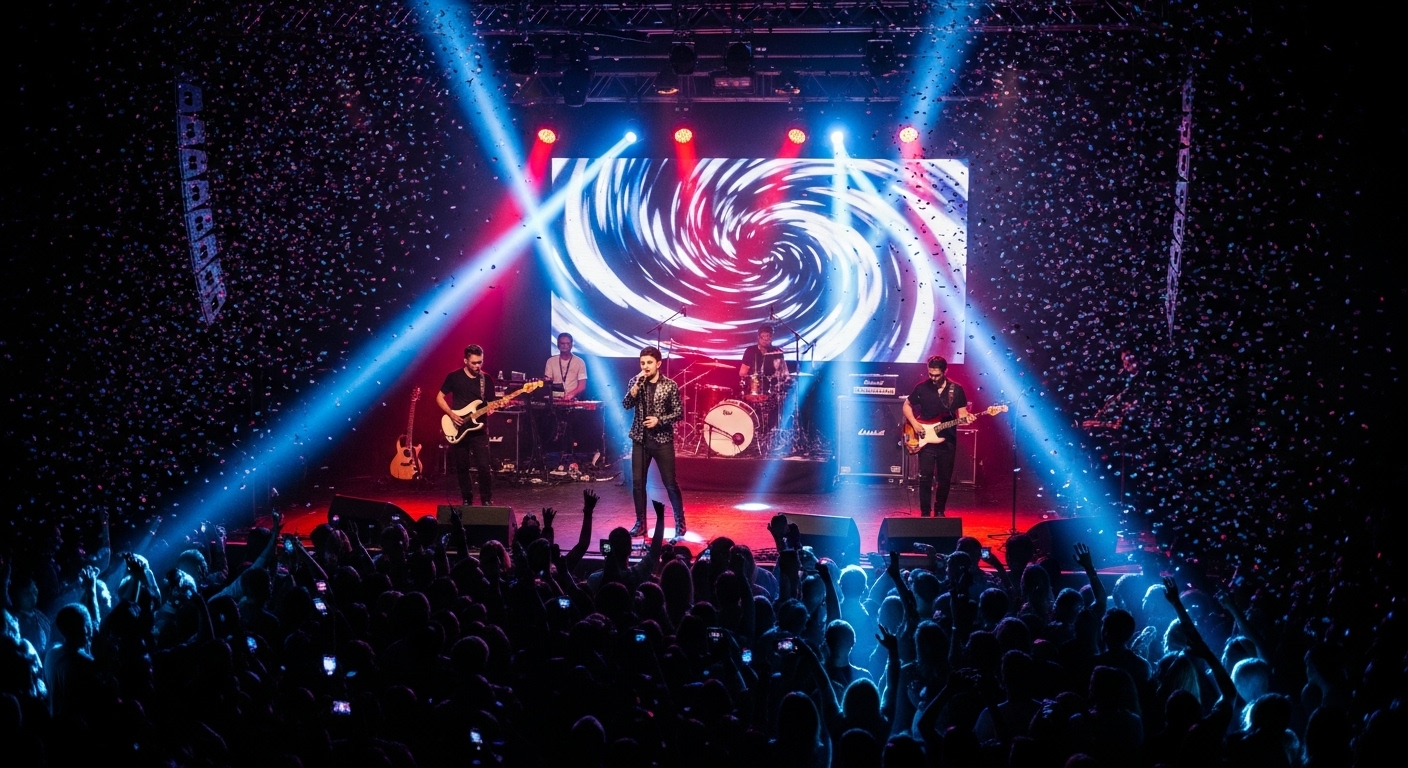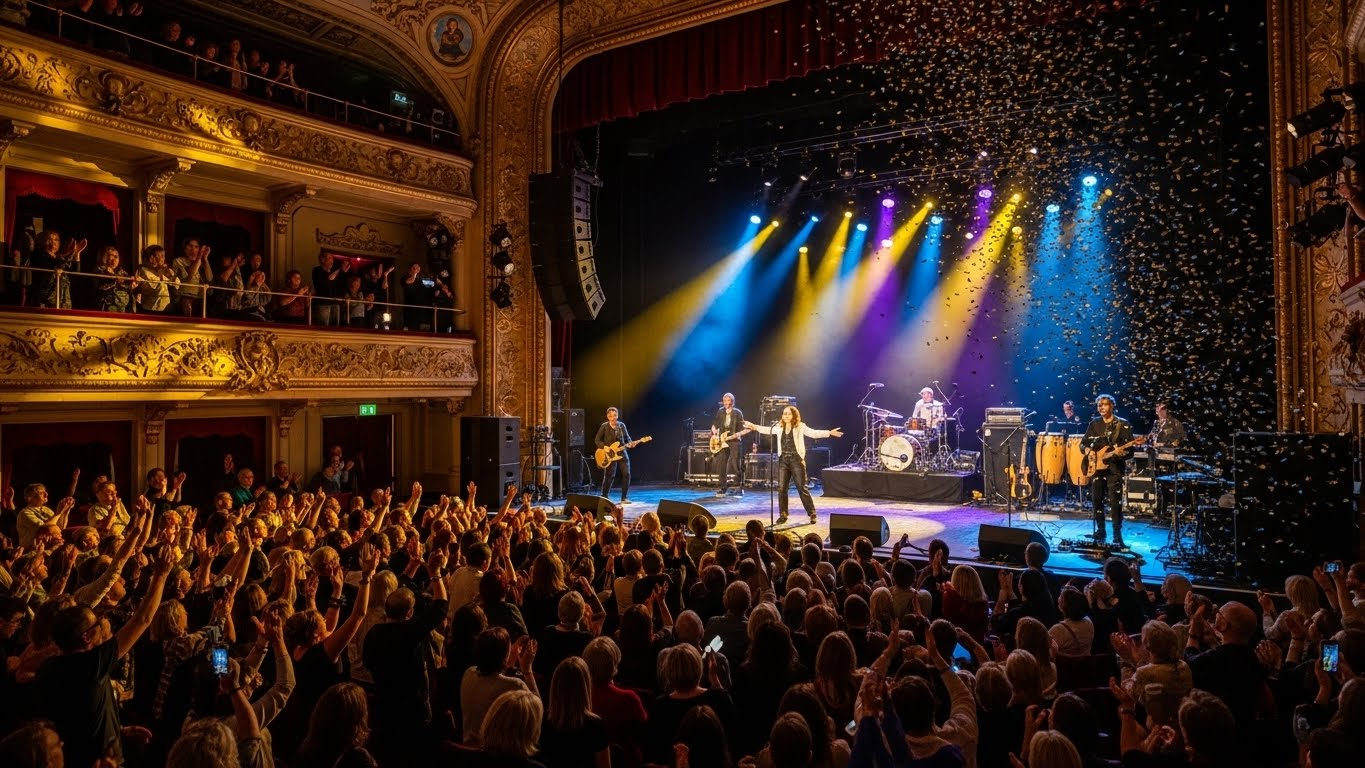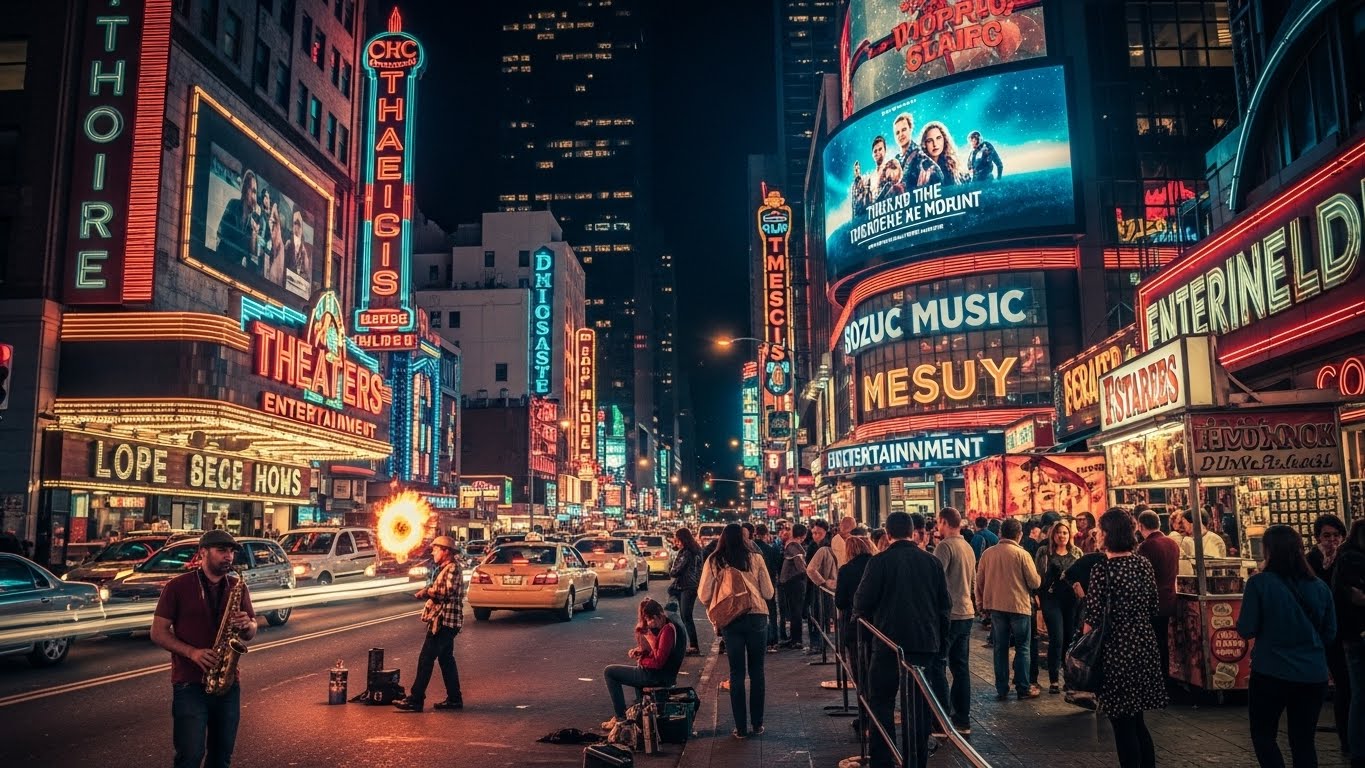Entertainment has always been an integral part of human culture, but its form and delivery have evolved dramatically over the years. From live performances and traditional storytelling to digital streaming and virtual reality experiences, technology has played a crucial role in shaping the entertainment landscape. In this blog post, we’ll take a closer look at how advancements in technology have transformed entertainment and what the future holds for how we experience fun and relaxation.
The Early Days: The Magic of Live Entertainment
Before the digital age, entertainment was primarily experienced in physical spaces. People gathered in theaters, concert halls, or public squares to enjoy performances—whether it was a Shakespearean play, a symphony, or a local storyteller weaving tales under the stars. The communal nature of entertainment during this period meant that experiences were often shared, and the sense of togetherness was just as important as the performance itself.
The limitations were clear, though. Not everyone could afford to attend events, and access to certain performances or stories was often restricted by geography and social class. Despite these barriers, the passion for live entertainment remained strong, and the bond between performer and audience created memorable moments that still resonate today.
The Rise of Television and the Birth of Mass Entertainment
With the advent of television in the mid-20th century, entertainment became more accessible to the masses. Television brought the world into our living rooms, offering everything from news to drama, variety shows, and comedy specials. It was a major turning point in entertainment history, as people no longer had to leave their homes to experience the excitement of theater or cinema.
Television also created the phenomenon of shared cultural experiences. Major events like the moon landing, the Super Bowl, and iconic TV shows like The Twilight Zone and Friends became part of a collective experience, binding audiences together across different backgrounds and regions.
However, the rise of television also came with its own set of challenges. While TV provided entertainment to millions, it also brought about the issue of limited options—there were only a few channels, and what was on air often had to cater to a broad audience, leading to content that may not always have met the diverse tastes of viewers.
The Digital Revolution: On-Demand Entertainment at Our Fingertips
The digital age, with the arrival of the internet, completely transformed the way we access and consume entertainment. No longer tied to a fixed schedule or a specific location, entertainment became a personalized and on-demand experience. Services like Netflix, Spotify, and YouTube revolutionized the industry by allowing people to watch movies, listen to music, and consume other forms of media whenever and wherever they wanted.
The rise of streaming services also gave birth to new content formats. For example, binge-watching became a cultural phenomenon, with entire seasons of shows made available at once. This shift had a profound impact on storytelling, as creators began to craft more complex, long-form narratives to keep audiences hooked over several episodes or seasons.
Social media platforms also emerged as a new form of entertainment. Platforms like Instagram, TikTok, and Twitter transformed the way we interact with celebrities and influencers, offering a more direct and informal way to engage with entertainment content.
Interactive Entertainment: The Era of Video Games and Virtual Worlds
One of the most exciting developments in entertainment over the past few decades has been the rise of interactive entertainment, particularly through video games. Unlike passive forms of entertainment like watching TV, video games allow players to step into different worlds and shape their own experiences. Games like The Legend of Zelda, Minecraft, and Fortnite are not just games—they are immersive experiences that bring players together across the globe, allowing them to form communities, collaborate, and even compete in real time.
Virtual reality (VR) and augmented reality (AR) have taken interactive entertainment to a whole new level. VR, for example, offers users the opportunity to experience entirely new worlds in 360 degrees, providing a level of immersion that was once unimaginable. These technologies have begun to blur the lines between the digital and physical worlds, opening up endless possibilities for new forms of entertainment—whether through virtual concerts, interactive films, or fully immersive video games.
The Future of Entertainment: What’s Next?
Looking ahead, the future of entertainment is likely to be shaped by even more advancements in technology. Artificial intelligence (AI) and machine learning are already making waves in entertainment, from AI-generated music to deepfake technology that allows for incredibly realistic digital performances by deceased celebrities.
Another exciting possibility is the continued development of immersive, multi-sensory entertainment experiences. We might one day attend a live concert or theater performance, not just by watching it on a screen, but by stepping into a fully immersive environment where we can see, hear, and feel the action unfolding around us. Imagine walking through a virtual world that interacts with your physical movements in real time or attending a movie where you control the plot.
Moreover, entertainment will likely become even more personalized. With the power of AI, platforms will be able to predict our preferences more accurately and tailor content to fit our unique tastes. Streaming services may offer customized experiences where the storyline of a movie or show can change based on your choices, providing an entirely new form of interactive narrative.
Conclusion
The world of entertainment has come a long way, from the days of live performances to the digital and interactive experiences we enjoy today. As technology continues to evolve, so too will the way we experience fun and relaxation. Whether through immersive virtual worlds, AI-generated content, or personalized streaming, the future of entertainment promises to be even more exciting and unpredictable. For now, one thing is certain: the boundaries between entertainment and technology are only going to blur further, offering endless opportunities for innovation and enjoyment.



